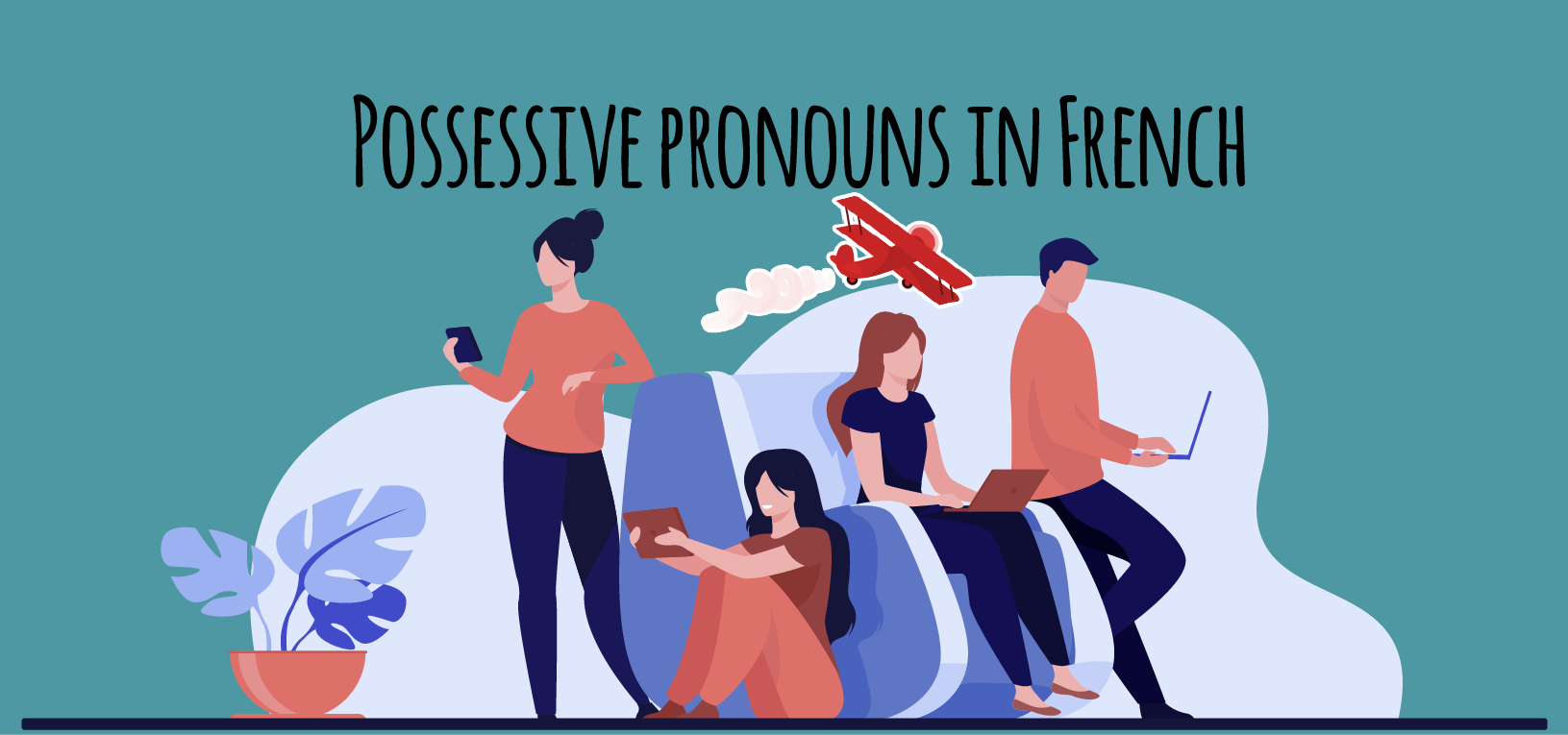Possessive pronouns in French

Possessive pronouns in French
ÍNDICE DE CONTENIDOS
As the possessive adjective in French is easy to use, so is the pronoun . It is very similar to Spanish, and they are used in the same cases, to replace something that we have already spoken about, and that expresses possession. The possessive pronoun, like any pronoun, is used to replace a noun that has been mentioned above, thus avoiding its repetition.
- The noun it replaces is identified based on its owner.
- The possessive pronoun is preceded by the definite article (le, la, les).
- Possessive pronouns replace a noun preceded by a possessive adjective (for example: ma + voiture). In English they are equivalent to ‘mine / mine’, ‘yours / yours’, etc.
- These pronouns have to agree in gender and number with the nouns they replace.
Gender and number
First and second person singular / plural
The call is made with the person who owns and the object owned.
- Tu as un chat: le tien / (Tienes un gato: el tuyo)
Third person
- It has different forms – the same as the adjective – depending on whether it is ONE or SEVERAL POSSORS
Shapes
First and second person
- A possessor
- Masculine: Le mien / tien (singular) + les miens / tiens (plural)
- Feminines: la mienne / tienne (singular) + les minnes / tiennes (plural)
- Various holders
- Male / female: notre / votre (singular) + nôtres / vôtres (plural)
- Note . The vowel / o / is pronounced open in the case of the possessive adjective: le notre
THIRD PERSON
- A possessor: le sien (yours) / la sienne (yours) + les siens (yours) / les siennes (yours)
- Various holders: le (yours) / la leur (yours) + les leurs (yours)
Possessive adjectives and their corresponding pronouns
- Mon travail (my job) / c’est le mien (It’s mine)
- Ma copy (my copy) / c’est la mienne (it’s mine)
- Mon histoire (my story) / c’est la mienne (it’s mine)
- Mes travaux (my works) / ce sont les miens (They are mine)
- Mes histoires (my stories) / ce sont les miennes (They are mine)
- Notre usage (our use) / c’est le nôtre (it is ours)
- Notre habitude (our habit) / c’est la nôtre (is ours)
- Nos ennuis (our problems) / ce sont les nôtres (They are ours)
- Nos erreurs (our mistakes) / ce sont les nôtres (they are ours)
And so far everything related to possessive pronouns in French. Also, and if this review is motivated by wanting to obtain your official degree, here are the next calls.


